
Dreaming Sea Divers is located in West Palm Beach, Florida; one of the best diving locations in the world. Renowned for its diverse marine life, variety of reef depths, and close proximity to the Gulf Stream, West Palm Beach has a little bit of everything. Our Florida SCUBA diving lessons are your ticket to beautiful scenery, remarkable aquatic life, and an unmatched location. See why you should book an experience with Dreaming Sea Divers!
SCUBA diving FL has a bounty of wrecks and reefs! There’s Breakers Reef, a two-mile long stretch of coral reef that's home to Caribbean tropical marine life, green morays, spiny lobster and fish from the Pelagic zone. Next is The Corridor, known as a collection of “shipreefs” for hosting many wrecks that you can dive to on a single tank. Mere minutes from the Palm Beach Inlet, you can find the 185-foot Greek luxury liner Mizpah in 90 feet of water, the retired PC1170, a 165-foot patrol boat sitting off of its bow and a path of rubble leading to the Amaryllis: a massive 441-foot freighter that slammed into Singer Island in ‘65.
When you come our way for West Palm Beach SCUBA diving lessons, you'll be amazed at the scenery in our clear blue waters. The shallowest depths we dive to in the reefs are 40 feet on top and 60 feet in the sand. Our deeper reefs start at 65 feet and drop to 90 feet in the sand. Many of our reefs have a double ledge system advantage where we can weave back and forth to save us bottom time and explore the view. This includes several wrecks starting at 65 feet down that have been intentionally sunk to attract marine life and promote coral growth. Some of these wrecks are even accessible to enter and look around inside!
May through August are the best months to observe leatherback, green, and loggerhead turtles nesting on the beaches and swimming back to the reefs. We see plenty of hawksbill turtles as well, though they don’t mate and nest here in Palm Beach. On our “Wreck Treks,” we are often joined by schools of Goliath grouper fish, and sometimes we see several species of sharks which can be photographed safely from a distance. Between August and September, it's possible to see over 30 giant groupers that congregate here to mate.
The dive sites we visit are populated with many species of moray eels, angelfish, butterfly fish, grunts, and snappers. Occupying our reefs are loggerhead, Kemp’s Ridley, hawksbill, and green turtles, octopus and squid, and anemones that house tiny shrimp. If we’re lucky, the manta rays, whale sharks and great white sharks may make a special appearance!
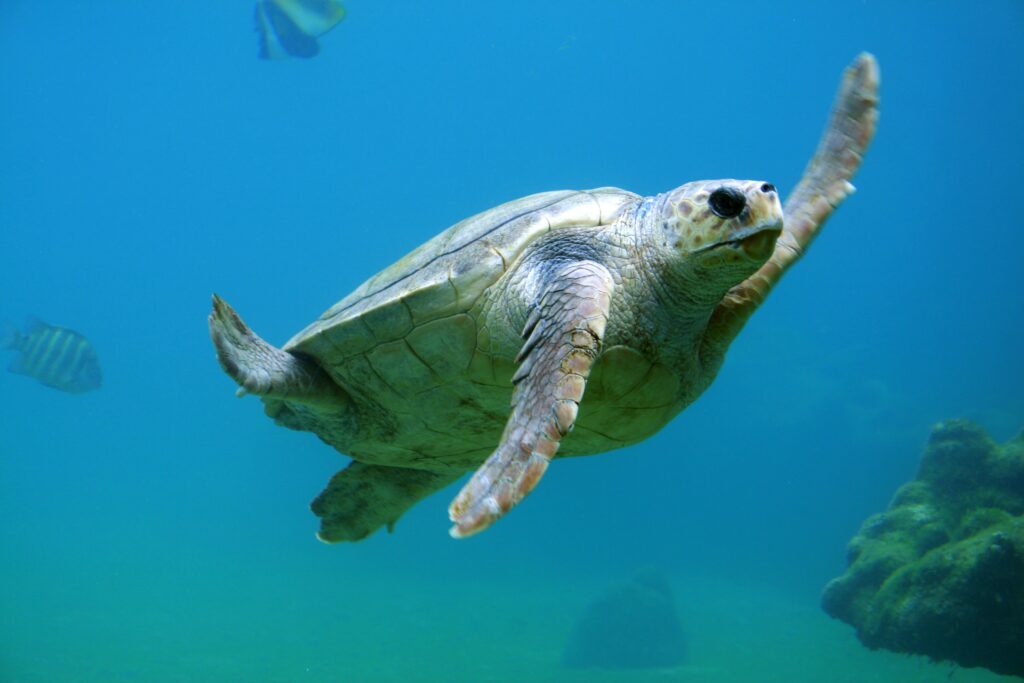
Our reefs are full of game fish and crustaceans, if you want to dine after your dive! Palm Beach hosts crabs, lobsters, clams, scallops, hogfish, snapper, grouper and cobia. Lobster hunting season is early August through the end of March, if you want to catch dinner eight months out of the year! Spotting the spikey lionfish is probably the coolest, though not so much for our reefs. This species is invasive and harms the reefs - but you could help by catching them to eat, if they suit your palette.
Blue Heron Bridge at Phil Foster Park is a world famous dive site, right here in Palm Beach. Divers have come here for decades to observe and photograph rare marine life that are hard to find elsewhere. These include batfish, frogfish, seahorses, manatees, sea robins and flying gurnards, bumblebee shrimp, spotted eagle rays, yellow spotted stingrays and pipefish. In addition, you can enjoy many types of blennies, tropical fish, and eels. What more could you ask for? Something else great: the deepest spot here is 23 feet, which means we do not have to be concerned about decompression limits. Keep in mind though, we are limited here by a daily two-hour window based around Slack High Tide (the weakest currents) and air consumption. We'll go over all of that during your South Florida SCUBA diving certification.
Jupiter
Jupiter is referred to as a small drinking town with a fishing problem. There is a famous lighthouse that’s worth climbing and plenty of fun shops and wonderful restaurants, some right on the water. The Square Grouper restaurant is the site where Jimmy Buffet recorded the music video for “It’s Five O’Clock Somewhere” with Alan Jackson. The diving is slight deeper and the currents are normally a little stronger than Palm Beach, but the reefs are filled with tons of life. There are also some exciting wrecks and good hunting spots in Jupiter as well.
Fort Lauderdale
Known as the “Venice of America,” Fort Lauderdale residents are passionate about the water and watersports. There is an artificial reef program that has sent dozens of wrecks to the seafloor, along with three retired oil platforms known as the Tenneco Towers. While these are cool to explore, you may find that several grunts, snappers, sponges and sometimes bull sharks are attracted to these as well!
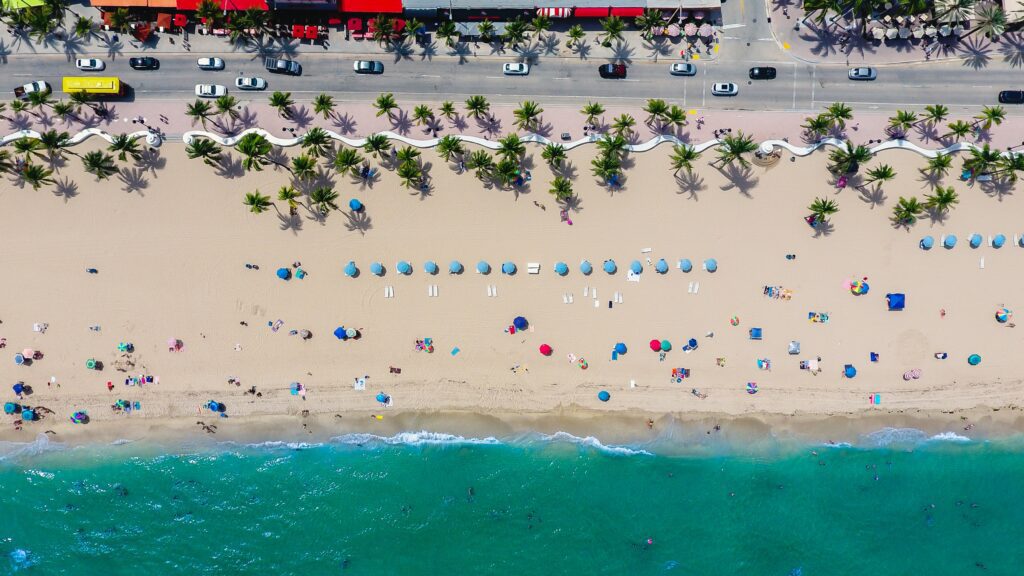
Miami
While best known for its pop culture and beach life, Miami is also a secret diving hub with wrecks that can be visited on a single tank. Go-to sites include the Miss Patricia (a 65-foot steel tug), two M60 tanks, the 110-foot Billy’s Barge, Ben’s Antennae Reef and the Miss Karline, a 100-foot ship lodged in the sand near the Patricia. But, the best is for last: The Spirit Of Miami, a retired Boeing 727 that made its final landing off Key Biscayne!
To prepare you for all dive sites in South Florida we may visit, you should know that water temperatures range from the mid 70s in winter to the mid 80s in summer and visibility is generally in the sub-100-foot range.
Dreaming Sea Divers will ensure that your dive trip in South Florida is easy, comfortable, and the experience of a lifetime! Become a certified diver through our private SCUBA courses and then embark on a private guided underwater tour with instructor John starting at the Blue Heron Bridge, or on one of the many comfortable dive boats! Get in touch with Dreaming Sea Divers today to plan and embark on your unique South Florida diving adventure!
Special note: Interested in becoming a Dive Professional? Check out John's upcoming Instructor Development Courses going on from October 16th - 24th 2022. SPACE IS LIMITED, SIGN UP TODAY!
The world is slowly opening back up after the pandemic and more people are eager to try new things in new places. Learning to dive is one of them and so SCUBA lessons are the first step. Not all instructors are created the same, however. It takes a lot of patience and effort but once you’ve become certified, it’s easy to become part of a great community that will open a lot of different avenues for you. The demand for SCUBA diving instructors will lead to so many opportunities for Private Instructors and at Dive Shops across North America and the Caribbean. Here at Dreaming Sea Divers, the courses to become an instructor are only offered through SDI (Scuba Diving International). To find out more, click here to read our previous blog.
As a SCUBA diving instructor, the ability to focus on setting high standards, solving problems, logistics and time management is just as important as making sure everyone has a great time. SCUBA diving instructors are truly a jack of all trades and must be up to the task of juggling the different sciences that go into the sport.

Investing in SCUBA instructor training can help you with ways to teach and helps you improve your own personal standards to learn theoretical and practical knowledge about diving. Having students and instructors on the same page is always important for safe practices in the recreational sport. You might even learn something that was overlooked or rushed through quickly during one of your courses.
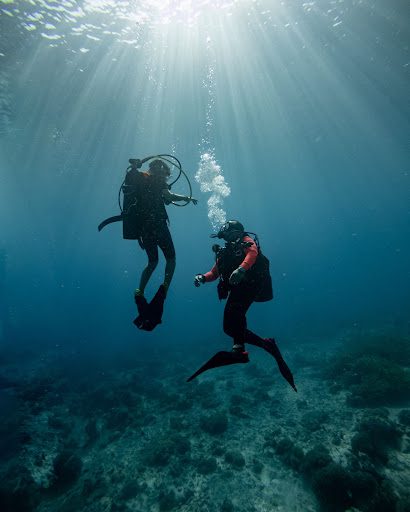
Like most jobs, it isn’t always a breeze. There’s an additional risk to SCUBA diving lessons and making sure your students are safe due to the unpredictability that the water has. Quick thinking is key in case students are frightened or diving conditions aren’t ideal. If you are training divers for a commercial or technical diving career, you will likely earn more. This is because a more specialized skill set is required, along with the use of specialized equipment. The Recreational SCUBA Instructor Course (Open Water SCUBA Instructor) is a prerequisite to teach those advanced level courses.
Also, there’s no need to think that teaching beginners and open-water courses is your only job. There’s plenty of job opportunities in recreational diving, in addition to industries and niches.
When thinking about a good way to travel, being a SCUBA diver is one of the best jobs for fulfilling that goal because you’re living out your passion each day. All in all, it’s similar to other professional outdoor-based careers because you spend time outside, find work in remote areas and promote the sport you love. If you’re looking for SCUBA diving lessons in West Palm Beach, Dreaming Sea Divers can help you get out in the water with a private SCUBA instructor.
Dreaming Sea Divers will be running an Instructor Development Course (IDC) from October 16-22, with an Instructor Evaluation Course from October 23-24. You’ll definitely be on the right track here to become an instructor yourself!
West Palm Beach has a lot to offer underwater and the proximity to the Gulf Stream is overall a beautiful and breathtaking area to dive in. Learn more about John of Dreaming Sea Divers here and if you live in South Florida, SCUBA diving certifications are available through our instructor courses here.
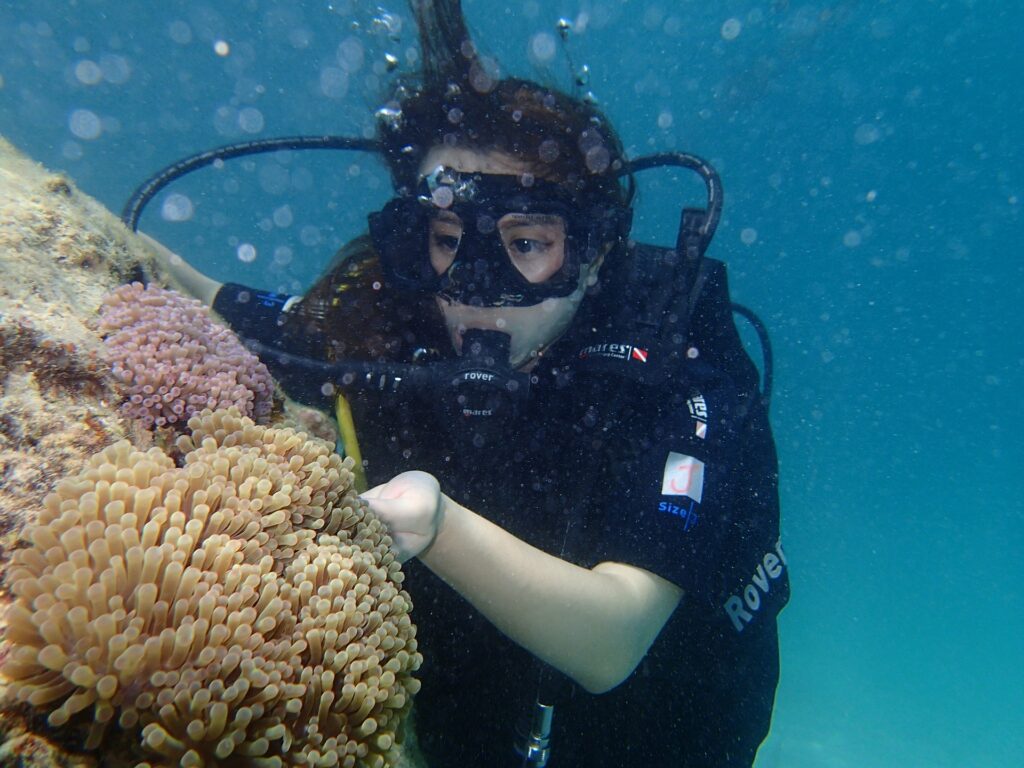
SCUBA diving can be intimidating to beginners but it’s quickly become one of the most popular recreational outdoor activities across the world. Getting started is much easier than you may think, and working with an experienced dive instructor will help you feel more confident and comfortable during your first few dives. There are some vital things to know about SCUBA diving and it’s important to have some idea of what you’re signing yourself up for. Take a look at our beginner’s guide to SCUBA diving and see for yourself why so many have taken up this popular outdoor hobby.
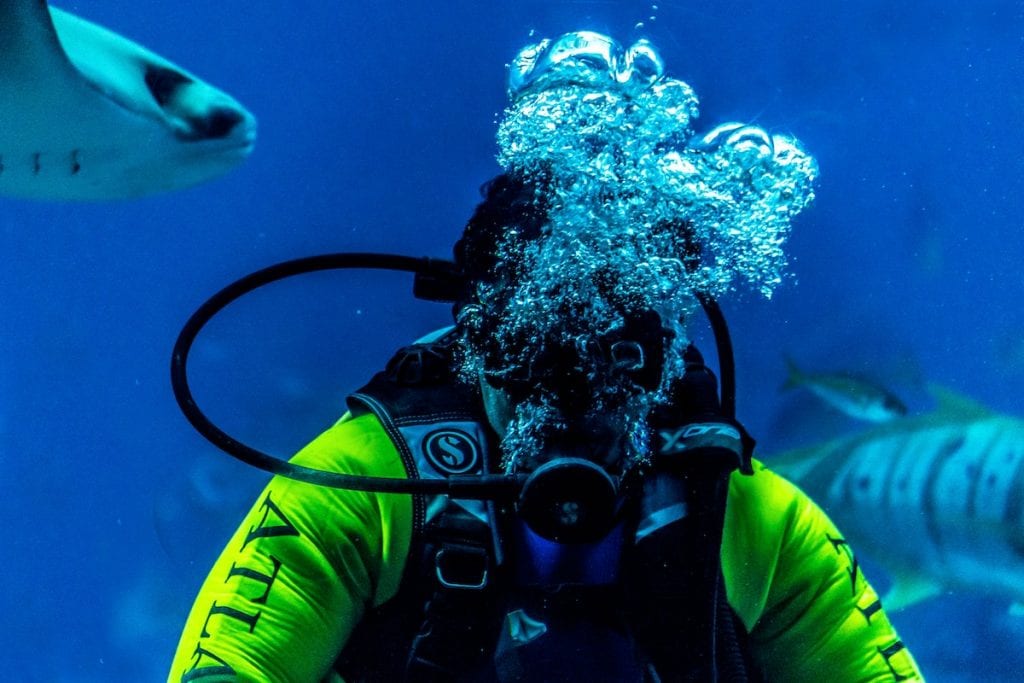 What is SCUBA diving?
What is SCUBA diving?SCUBA stands for self-contained underwater breathing apparatus which is a mechanism used in diving to allow us to breathe underwater and maneuver. SCUBA gear allows you to dive and breathe completely independently of surface air, meaning there’s no need to come to the surface to catch your breath. This gives you greater independence and more freedom of movement while also permitting you to stay underwater for longer periods of time compared to Freediving. (Refer to the blog about the differences between Freediving and SCUBA Diving for more info!)
SCUBA diving can be done recreationally and professionally. About 1 million people across the world are recorded getting their SCUBA certification each year. And there are hundreds of diving careers to choose from including becoming a dive instructor, dive travel leader, naval diver, or hazmat cleanup diver to name a few.
Though there are risks to just about any outdoor activity, SCUBA diving is considered to be a low-risk activity. In comparison, snowboarding, bowling, fishing, and volleyball lead to more Emergency Room admissions than SCUBA diving each year. As long as you utilize safe diving practices and remember the tips and tricks you learn in your Open Water SCUBA Diver Course and subsequent courses depending on your environment, you should have nothing to worry about. The most common medical concerns associated with diving are sunburns, seasickness, and dehydration - which are all easily preventable.
The minimum age requirement for the Junior Open Water SCUBA diving certification in most of the U.S. is 10 years old. Furthermore, anyone under the age of 12 will need to be accompanied by a guardian or guide at all times. This is to ensure the safety and comfort of children as well as their families. Children as young as 8 years old can try it in a pool with a professional!
The bends, which is also known as decompression sickness, refers to the way your body reacts to a rapid decrease in the pressure that surrounds you. This can refer to air or water pressure. In diving, the bends typically occur when nitrogen bubbles form in your system which can lead to blocked blood vessels. One of the first signs of decompression sickness is a tingly sensation that can be felt throughout your limbs. The bends typically result in joint pain felt throughout the body and in some cases could cause greater concerns. However, decompression sickness is quite rare and easily preventable by diving conservatively and following established guidelines that you learn and that your diving computer reminds you of.
It’s no secret that SCUBA diving is an expensive hobby to start up. From the equipment to taking diver’s courses, SCUBA diving can initially cost a substantial amount of money. There is quite a bit of gear and equipment used in SCUBA diving that needs to be purchased prior to taking your first course, and courses can range from $100 to $3000. Though the initial costs of SCUBA diving are steep, you won’t be paying for these things every time you dive. Most dive equipment lasts for decades and can be purchased second-hand from dive shops or other dive enthusiasts for a lesser cost. And once you become SCUBA certified, you’re certified for life.
Another expense that you should consider in regards to SCUBA diving is whether or not you live near a body of water that you can go diving in. The ocean isn’t the only place to dive, but it is the most popular, which for many, requires some sort of travel. Depending on your mode of transportation - whether you decide to fly, drive, or arrive by boat to your destination - this can add a significant price tag to SCUBA diving.
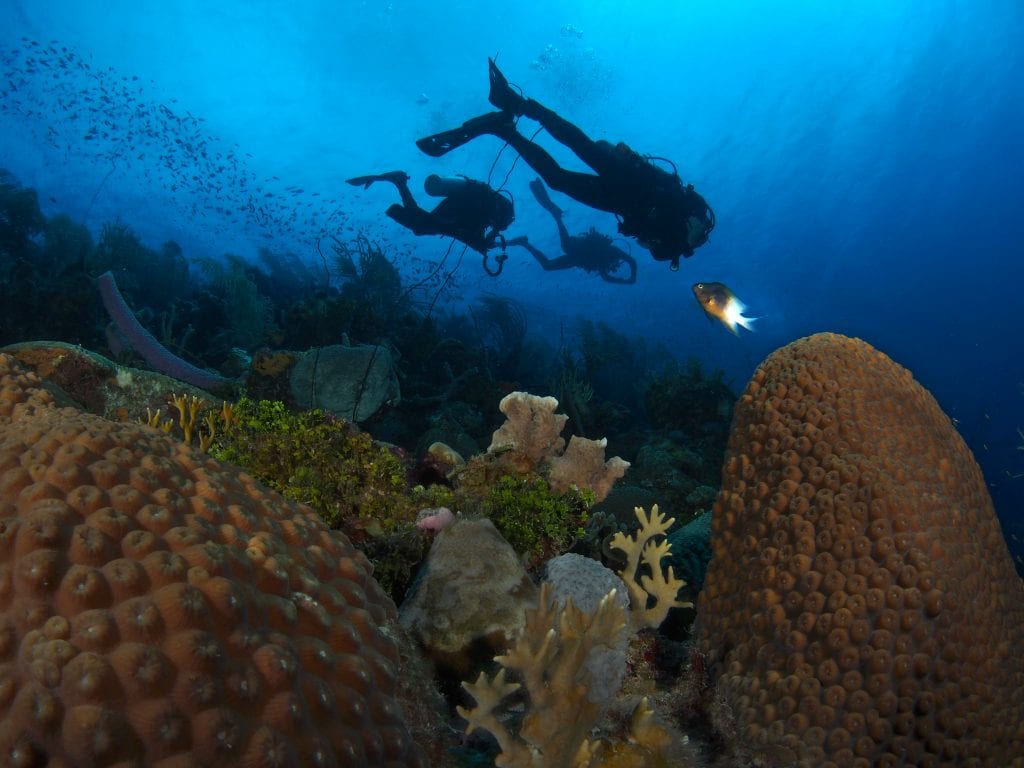
To get your SCUBA diving certification you’ll need to meet with a certified diving instructor. The courses which are offered under our Diving Fundamentals section will give you the basic diving skills and knowledge you need to begin your journey to becoming a qualified SCUBA diver. Along with supervised dives, you’ll be required to do your own independent studying of safety guidelines and specific diving techniques. You’ll also be required to learn the basic safety guidelines and skills that are needed to experience a variety of new things such as:
There are quite a few pieces of equipment you’ll need for SCUBA diving, but the most basic tools you’ll need are:
Keep in mind that the rental of almost all of this equipment is included in almost every class tuition that Dreaming Sea Divers offers!
Interested in expanding your dive abilities? Then connect with John at Dreaming Sea Divers today to get your SCUBA diver certification! He emphasizes the importance of safety in his courses and is always willing to help a new diver improve their skills. His goal is to make everyone confident, safe, and able to plan and execute dives with a qualified buddy. See how John can help you become a certified diver today!
With the modern invention of the SCUBA tank, exploration of the oceans has been changed dramatically, but still, people continue to free dive. Ancient people all around the world have been exploring the oceans for centuries without an air cylinder.
However, in the debate of SCUBA diving vs. freediving, the differences go deeper than just the equipment. While both are a similar adventure, the technique and overall experience between the two is vastly different, and each person has a particular perception of the dive. It is truly a matter of taste.
The most obvious difference between SCUBA diving vs. freediving is the use of an air tank and other relatively cumbersome equipment like masks, gloves, regulators, depth gauges, and in today’s age, a dive computer. In contrast, while you really don’t need anything to go free diving, the most basic equipment includes a mask and fins. It’s also common to wear a wetsuit and a snorkel depending on your objective. With freediving, the most important thing you dive with is your dive buddy.
When people started using tanks to explore oceans the technique had to evolve with the technology. SCUBA divers must pay careful attention to their ascents, descents and take routine safety stops to avoid decompression sickness. They have to be aware of the nitrogen levels in their bodies. This makes SCUBA diving a slower, more thought out adventure than freediving.
On the other hand, freedivers don’t have to worry about nitrogen levels or slow ascents and descents. Freedivers have much more maneuverability than SCUBA divers. However, freedivers are challenged to hold their breath throughout the entire dive. Freediving requires a great deal of practice and training to be able to stay down for an extended period of time.
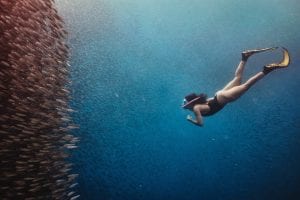
While the differences in gear affect the technique, the technique affects the experience. So if you’re SCUBA diving, you will have the advantage of staying underwater for longer. The longer you stay down, the more time you have to observe marine life and underwater geographical features. This means the longer you stay underwater, the more your eyes will adjust to the dark lighting which can increase the vibrancy creating a totally different image than a freediver. The length of time also influences how much you can explore. For example, if you’re going down to an underwater shipwreck or canyon you will be able to explore it more thoroughly.
However, freediving also has its benefits. Without the need for a tank, a freediver is able to swim smoother through the water and have a different experience with marine life. There is no added noise or disturbance because you are simply holding your breath. This can allow a freediver to get up close to schools of fish or turtles without scaring them off.
It has also been pointed out by avid ocean explorers that one of the biggest differences between SCUBA diving vs. freediving is the sense of awareness. When you are SCUBA diving you are enabled to mainly focus externally on your surroundings and gear. You are constantly analyzing these things and reacting to external forces underwater.
In freediving, it has been described as a more inward-focused experience where you are challenging yourself while still exploring. Your perception of yourself and your surroundings are altered when your mind is in a survival state, and you have to pay careful attention to what your body is telling you.
While the debate of SCUBA diving vs. freediving can go on forever, Dreaming Sea Divers has the best of both worlds. Here at Dreaming Sea Divers, we offer classes and guided experiences for both types of diving. If you have any questions or want to learn more about us, head over to our contact page or give us a call at (607) 624-6770.